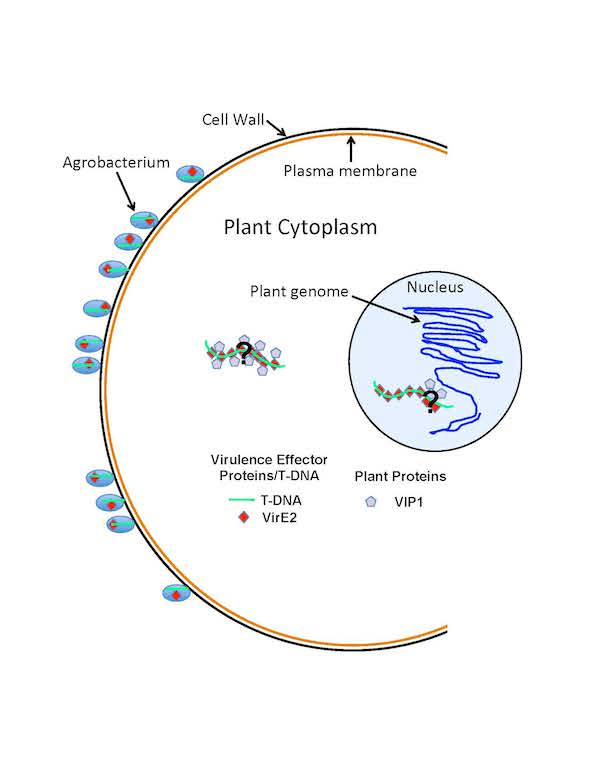How important is a Very Important Protein?
06-26-2014

Nature's bacterial genetic engineer, Agrobacterium tumefaciens, transfers DNA (T-DNA) to plants and, as such, is the major way that scientists and agricultural biotechnologists create plants containing new genes. As well as transferring DNA, Agrobacterium transfers several proteins (virulence "effector" proteins) to plant cells. Some of these transferred bacterial proteins interact with plant proteins to help guide T-DNA to the nucleus, where it integrates into the plant genome. One such plant protein, VIP1 (VirE2 Interacting Protein 1), interacts with the Agrobacterium effector protein VirE2 and has therefore been proposed to play an important role in plant genetic transformation. In a recent publication, visiting graduate student Yong Shi, Research Scientist Lan-Ying Lee, and Professor Stanton B. Gelvin tested this model. They generated mutant Arabidopsis plants that either were deficient in VIP1, or overexpressed VIP1. In no instance did these plants show altered transformation susceptibility. In addition, VIP1-deficient or VIP1-overexpressing plants did not show an alteration in the subcellular localization of VirE2 protein. These results indicated that VIP1 does not play an important role in Agrobacterium-mediated plant genetic transformation.
Shi, Y., Lee, L.-Y, and Gelvin, S.B. 2014. Is VIP1 important for Agrobacterium-mediated transformation? Plant J. In press. DOI: 10.1111/tpj.12596.
Article and photo provided by Stanton Gelvin, Edwin Umbarger Distinguished Professor of Biological Sciences.